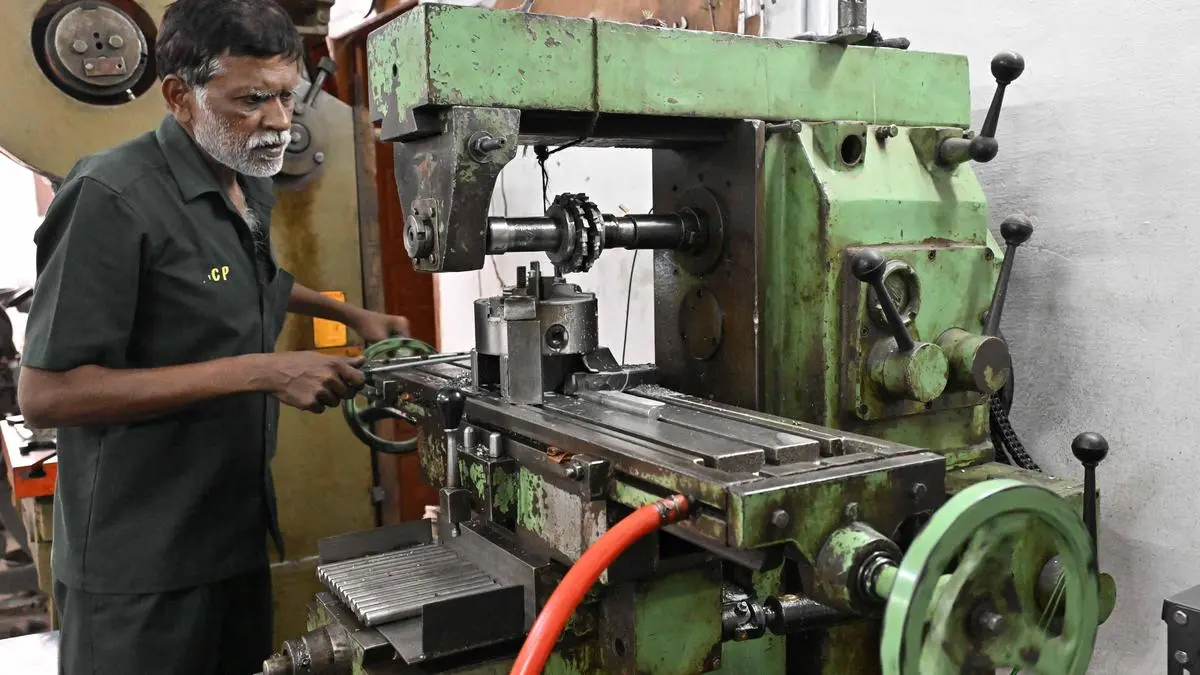Copyright thehindubusinessline

The newly introduced Shram Shakti Niti 2025 highlights MSMEs’ place at the centre of India’s employment and production system. These enterprises keep supply chains moving, nurture local skills, and employ more than 70 per cent of the country’s workforce. Their strength lies in their ability to stay lean, make quick decisions, and build teams that work closely together. The consolidation of nearly 50 laws into four labour codes; on Wages, Social Security, Industrial Relations, and Occupational Safety and Health (OSH) is an important reform. But the next stage must recognise that MSMEs’ character, rhythm, and constraints are different from those of large enterprises. MSMEs rely on trust-based relationships and operate with limited administrative bandwidth. Their needs are not about exemption but about proportionality — rules that protect workers while allowing flexibility for businesses to survive and grow. MSMEs function in an ecosystem defined by personal engagement, short production cycles, and intense competition. For many, the owner is also the HR head, the accountant, and the compliance officer. Applying identical compliance procedures to a 10-person and a thousand-person enterprise creates a structural mismatch. A differentiated approach would help formalise employment without stifling enterprise. It would also help secure the rights of workers in the very segment where informality is highest. Strengthening MSMEs is, in effect, a way of strengthening labour protection. The next logical step in India’s labour reforms could be an Employment Relations (ER) Code—a dedicated framework for enterprises employing up to say 50 workers. It would not replace existing laws but work within them, adapting procedures to the size and capacity of small firms. The ER Code would focus on partnership at the enterprise level. It would encourage employers and employees to decide on wages, safety, and social security together, within a framework of accountability. How it could work Under the ER Code, small establishments would register to come within the formal system. Each would form a Work Council, made up of representatives of employers and employees. These councils would deliberate and record mutual agreements on working hours, safety norms, and benefits. The Labour Department’s role would be advisory rather than punitive, focused on guidance, feedback, and mentoring support. Digital integration would make this process transparent and efficient. Each enterprise and its Work Council could be linked to EPFO, ESIC, and DGFASLI databases. With every worker already holding a Universal Account Number (UAN), employment records and benefits could travel with workers as they change jobs. Institutions would then evolve from inspectors to mentors, helping enterprises comply, mediate disputes, and build trust-based workplaces. In this model, enforcement would rely on self-regulation supported by technology. Verified digital records of Work Council agreements could serve both as proof of compliance and as a basis for incentives such as easier credit or tax benefits for enterprises that maintain strong employment practices. Linking incentives with compliance would reward good behaviour and encourage gradual formalisation. While designed for smaller units, the ER approach could eventually influence larger enterprises as well. Over time, labour governance could shift from compulsion to collaboration, from uniform rules to flexible frameworks that achieve the same goals with greater participation. A reform spirit worth deepening The Shram Shakti Niti 2025 already reflects this evolution in thinking. It positions the Ministry of Labour as an employment facilitator, not merely a regulator, and promotes digital integration and risk-based inspection. The next leap for India’s MSME story lies in policy that scales. Building institutions that treat small enterprises with the dignity of trust is the real test of reform. The proposed Employment Relations Code can be that bridge, turning the promise of self-reliance into a living framework where enterprise and equity grow together. Prakash is Regional Provident Fund Commissioner serving in Kochi; Tiwari is Regional Labour Commissioner (C), Thiruvananthapuram. Views are personal Published on November 8, 2025



